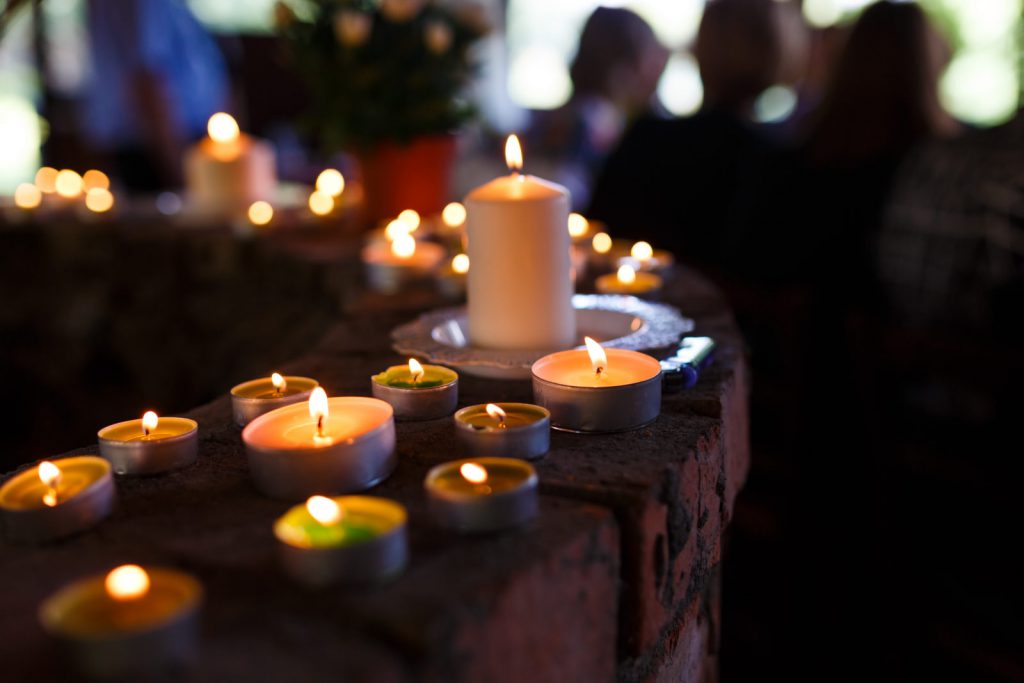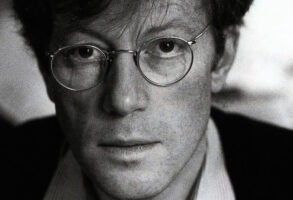
Published March 23, 2016
A version of this essay appears in Confessions of a Heretic by Roger Scruton, which will be published in the U.K. on March 28, 2016.
In a significant essay entitled “Mourning and Melancholia”, Freud writes of “the work of mourning”, meaning the psychic process whereby a cherished object is finally laid to rest, as it were buried in the unconscious, and the ego liberated from its grip. Until the work of mourning has been accomplished, Freud argues, new life, new loves and new engagement with the world are all difficult if not impossible. This is the explanation of the state that used to be known as melancholia – as he sees it – a kind of willed helplessness in which the world is seen as alien and unmanageable.
I am not, in general, persuaded by Freud’s psychology. But in this matter, it seems to me, he was on the right lines. We lose many things in our lives. But some losses are existential losses. They take away some part of what we are. After such a loss, we are in a new and unfamiliar world, in which the support on which we had depended – perhaps unknowingly – is no longer available. The loss of a parent, especially during one’s early years, is a world-changing experience, and orphans are marked for life by this. The loss of a spouse can be equally traumatic, as is the loss of children, who take with them into the void all the most tender feelings of their parents. Such losses leave us helpless, and even if we find a way of healing the wounds that they make, the scars will remain.
Religions, laws and customs all provide for the ritual mourning of beloved people. But there are no clear precedents for the work of mourning when what is mourned is a nation, a civilisation or a place. And if it is true that Richard Strauss was mourning, in Metamorphosen, the Germany that he had known and which had been destroyed by the Second World War, then there is an added problem that he must certainly have encountered, which is the great difficulty we all have, in mourning what we condemn. The work of mourning, as Freud conceived it, is a work of redemption, in which the lost figure is blessed in the memory of the one he leaves behind. All funeral rites and all elegies for the dead are designed to highlight the virtues and to minimise the vices of the departed person. Mourning is a process of reconciliation, a work of forgiveness, in which the dead person is retrospectively granted the right to die. But what if the departed person cannot be forgiven? What if his vices are an immoveable obstacle to all attempts to accept him? Then mourning becomes impossible.
Germans after the war felt this about their country. The Germany that we know from art, music and literature – the Germany of the Gothic cathedrals and the gingerbread cities, of Dürer and Grünewald, of Luther’s Bible, of Goethe, Schiller, Kant and Hegel, the Germany of the romantic poets and of the greatest continuous musical tradition that the world will ever know – that Germany had been poisoned in people’s thoughts by Hitler. It would have been easier to deal with the memory of the Hitler years if they had been imposed on Germany by some alien power which had sought to obliterate this great nation, as the Mongols obliterated the civilisation centred on Baghdad, or as the Chinese are at this moment obliterating Tibet. But it was not like that. The Nazis proclaimed themselves heirs to German civilisation. Hitler was not just a madman: he was an aesthete and an intellectual, like Stalin and Mao; he emphasised in all his speeches the history and achievements of the German people; he invoked the art, music and philosophy of Germany as justifications for his cause and objects of his pride. And the Germans followed him on his path of conquest, sharing his triumphs and forced very soon to share his disastrous defeat. Although their music was not destroyed by the war, their cities – the greatest cities in Europe – were reduced to rubble, their civilian population exposed to the horrors of blanket bombing and the rapine of the Soviet Army, and the noses of the survivors rubbed in the unspeakable reality of the Holocaust. Their country was destroyed, but it was impossible to mourn it.
Two psychoanalysts, the husband and wife pair Margarete Nielsen and Alexander Mitscherlich, reflected on this situation in a book published in 1967 – Die Unfähigkeit zu trauern – the Impossibility of Mourning. The Germans could not grieve for their dead and at the same time accept the guilt that their dead had incurred. Even the heroic self-sacrifice of the German armies on the Russian front could not be given as a proof of virtue. All were guilty – guilty not only for the insane destruction of their country, but also for the crimes against humanity and civilisation that had been unleashed by the Nazis. The world insisted that the Germans accept their guilt. Hence the world denied them the relief of mourning. Their dead lay unburied in their conscience, like Polynices outside the walls of Thebes. As in the Antigone of Sophocles, piety called for mourning while politics forbade it.
Exactly what were Strauss’s feelings in the matter I do not know. The generally accepted story is that he composed Metamorphosen on hearing of the destruction by bombing of the Munich Hoftheater, where so many of his artistic triumphs had been celebrated. The words “in memoriam” appear in the score at the point where he quotes from the funeral march of Beethoven’s Eroica Symphony, and some have interpreted this as indicating that the piece is a memorial to Beethoven.
As with all such speculations, I believe we should step back from the composer’s biography and ask ourselves, instead, how we might attach a meaning to this great masterpiece. Nielsen and Mitscherlich were fundamentally right concerning the difficulty that modern Germans find themselves under, when it comes to mourning for their dead. But Strauss’s music invites a more general mourning, and one that we too can share. It is contemporary with another work of mourning by a German artist, the extraordinary novel Dr Faustus by Thomas Mann. Music is the theme of Mann’s novel, which paints the hair-raising portrait of a modern composer who lives under a Faustian pact with the devil, and whose mission is to “take back the 9th Symphony”.
Mann’s work too was written in response to the destruction of the German cities. It is a work of despair; but like Strauss, Mann believed that, even in despair, art can bring a message of reconciliation. By showing the spiritual truth of our times, art redeems that truth, incorporates it into the ever-flowing history of consciousness. We can lose everything; but if we are still conscious of that loss and what it means, then there is something that we have not lost. All is not lost, if art remains, to show that all is lost. That is the message of Dr Faustus, and for people of my generation this message marked out Mann’s novel as the companion piece to Eliot’s Waste Land: those great works of art were invitations to accept that we live at the end of things, and yet can find cause to rejoice in the fact that we know this, and know what it means.
Strauss’s work is a work of music: but it is also about music, in something like the way that Mann’s novel is about music. Mann’s hero tries to remake German music in defiance of itself: his theories (loosely based on those of Schoenberg) involve a rejection of tonality. The idiom of harmony and counterpoint, based on the triad and the scale, is, for Adrian Leverkühn, Mann’s composer hero, an exhausted idiom, incapable of capturing the Mephistophelian negation that has now taken up residence in the heart of our civilisation. Tonality must be defied, if music is still to have a meaning. Strauss, by contrast, defies the defiance. In all his late works he tells us that rumours of the death of tonality are exaggerated. We can mourn our lost civilisation in its own musical language.
Metamorphosen is a tribute to the stringed instruments that emancipated Western music from the human voice. Violins, violas and cellos have the inflections of the human voice without the pollution of speech. They are the voice itself, disembodied, transferred to the imaginary space of music and there endowed with a soul. It is the melodic, not the percussive, aspect of the strings that Strauss exploits: none of the instruments plays pizzicato throughout the piece. The work was initially conceived as a string septet. Later Strauss reworked it for 23 solo instruments, bringing to the fore its contrapuntal character.
This contrapuntal organisation is telling us something, not about music only, but about the nature of our civilisation in general and Ger-many’s contribution to it in particular. If it is not too pompous a way of putting it, Western civilisation is itself a contrapuntal achievement. It arose through the contest and conciliation of many voices, moving freely and independently, but harmonising through law and custom, without the need for any enforced unity or control from above. This fact had been noticed by the philosophers of the Enlightenment, and in particular by Adam Smith in Scotland and Schiller in Germany. Ours is an order arising out of freedom, a form of collective adjustment and conciliation. And it is this that had been jeopardised by the fascist and communist dictatorships of the 20th century, which sought to impose a new and conscripted unity on the people, organised by a single Party under a single command. And, just as regimentation had destroyed the civilising process in Germany, so had it destroyed German music, imposing the artificial order of serialism on what should have been the spontaneous singing of the human voice. In Metamorphosen Strauss was celebrating a lost form of social order, with a contrapuntal texture that recalls the 40-part motet Spem in alium by Thomas Tallis. Polyphony of this complexity always points the listener in a religious direction. And Strauss’s work is no exception. In mourning our civilisation, it tells us, we are also turning towards God. Not that Strauss was a believer: only that he understood the religious need of human beings, and answered to it in his music.
The reference to the stumbling theme of the Eroica slow movement is not the only allusion contained in this piece. The second subject takes off from the lament of King Marke, in Tristan and Isolde, over the faithless Tristan. You can read a lot into this. Tristan and Isolde have been taken far beyond the daylight world of social order, into a darkness from which there is eventually no return. Marke is grieving not only over the loss of his friend and his wife, but over the destruction of everything by a force that erupts uncontrollably into human affairs from another region, the region where death and sacrifice are the ruling principles. Yet his grieving leitmotiv has a supremely human tenderness – it contains an offer of forgiveness, of the kind that only a parent can make, and at the same time a recognition that the two lovers lie beyond the reach of forgiveness, in a world where the voice of duty is silenced, and death reigns supreme. Just such a world was Germany at the end of the Second World War.
Those features are worth noting, I think, since they serve to emphasise the very metaphysical character of Strauss’s lament. Like Thomas Mann, he is reaching for a kind of absolute mourning, one that passes beyond the grief for this or that beloved object, to embrace the loss of everything significant, even the loss of significance itself, as we might put it, the loss of loss. Only this can embrace the enormity of what the Germans had undergone, and the enormity of their own crime in dragging the rest of Europe down with them into the abyss.
For this reason it is impossible to understand this work merely as an elegy. An elegy is a way of accepting the loss of some precious thing. It rejoices in the fact that the precious thing was given. If it is sad, it is with an accepting sadness. An elegy says: this we were given, and it is gone, but we should be grateful for it, and try to live up to its memory. We in England are very familiar with elegiac music. We too suffered loss, but loss of a very different kind, in the First World War, which took away the social order, the pastoral way of life, and the noble aspirations of the English, and dumped us suddenly and brutally in the modern world. Much of our modern music is an invocation of things of which we are bereft. Works like the Cello Concerto of Elgar, the Fifth Symphony of Vaughan Williams, and the Concerto for Double String Orchestra by Tippett, invoke our lost pastoral homeland in a spirit of tender regret. They offer us a manageable sadness, which is also an encouragement. Something of all that remains, they say: something to live up to, material to re-forge and recast in a renewed attempt at living rightly. I hear this in the later works of Vaughan Williams, and especially in his Pilgrim’s Progress. By mourning what we have lost, we also regain it, in another and transmuted form. So the elegy tells us.
I once wrote a book entitled England: an Elegy. I was aware when writing it that I was emphasising the good, not the evil, that my country had stood for. But I felt entitled to do so, not merely because the good in my view outweighed the evil, but also because I was embarking on a legitimate work of mourning, just as Elgar had embarked on such a work in his Cello Concerto. Elegies are attempts at reconciliation and redemption, works of mourning in the sense intended by Freud. Strauss’s Metamorphosen is not, in that sense an elegy. It is a work de profundis, which looks back to what has been lost as the returning traveller looks at the bombed-out remnants of his city, in which not a survivor can be found. It is a work without hope, and without any promise for the future. Yet for all that, it is a great work of art; and one that still speaks to us.
Roger Scruton is a senior fellow at the Ethics and Public Policy Center.








